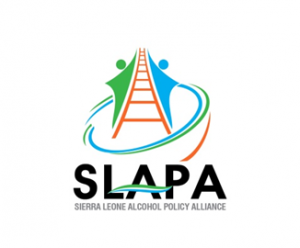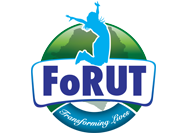 Leading public health experts warn that youth around the world are exposed to extensive alcohol marketing. Current controls on that marketing appear ineffective in blocking the association between youth exposure and subsequent drinking. This is documented in a supplement of the prestigious scientific journal Addiction. The Addiction supplement comprises 14 papers, with research presented from around the world. Lead editor Professor Thomas Babor of the University of Connecticut, says: “Governments are responsible for the health of their citizens. No other legal product with such potential for harm is as widely promoted and advertised in the world as alcohol. These papers provide a wealth of information to support governments in their efforts to protect children and other vulnerable populations from exposure to alcohol marketing.” The experts call for governments around the world to renew their efforts to address the problem. They recommend strengthening the rules governing alcohol marketing with more effective independent statutory regulations, as self-regulation systems have repeatedly been proven not to work. Key findings from the collection of peer-reviewed manuscripts in Addiction include:
Leading public health experts warn that youth around the world are exposed to extensive alcohol marketing. Current controls on that marketing appear ineffective in blocking the association between youth exposure and subsequent drinking. This is documented in a supplement of the prestigious scientific journal Addiction. The Addiction supplement comprises 14 papers, with research presented from around the world. Lead editor Professor Thomas Babor of the University of Connecticut, says: “Governments are responsible for the health of their citizens. No other legal product with such potential for harm is as widely promoted and advertised in the world as alcohol. These papers provide a wealth of information to support governments in their efforts to protect children and other vulnerable populations from exposure to alcohol marketing.” The experts call for governments around the world to renew their efforts to address the problem. They recommend strengthening the rules governing alcohol marketing with more effective independent statutory regulations, as self-regulation systems have repeatedly been proven not to work. Key findings from the collection of peer-reviewed manuscripts in Addiction include:
-
Exposure to alcohol marketing is associated with youth alcohol consumption;
-
Analysis of alcohol promotion during the 2014 FIFA World Cup indicates alcohol marketing practices frequently appeared to breach industry voluntary codes of practice’;
-
Alcohol industry self-regulatory codes do not sufficiently protect children and adolescents from exposure to alcohol promotions, especially through social media.
Alcohol is the leading cause of death and disability for young males aged 15-24 in nearly every region of the world, and young females of the same age in the wealthy countries and the Americas. “This is by far the most comprehensive documentation on the need for restrictions on alcohol marketing. As such it underscores the importance of the new alcohol policy documents that are now under preparation in the global South, among others in several of FORUT’s partner countries”, comments FORUT’s Secretary General Morten Lønstad. “A key element in all these documents is regulation of alcohol marketing”. Chris Brookes of the UK Health Forum noted that “Governments have previously approved self-regulatory measures on alcohol advertising; however, we can no longer say that they might work to protect our young people – they don’t. In a literature review of more than 100 studies, none was identified that supported the effectiveness of industry self-regulation programmes.” The papers offer guidelines to developing more effective alcohol marketing regulations:
-
The most effective response to alcohol marketing is likely to be a comprehensive ban on alcohol advertising, promotion and sponsorship, in accordance with each country’s constitution or constitutional principles.
-
Regulations should be statutory, and enforced by an appropriate public health agency of the local or national government, not by the alcohol industry.
-
Regulations should be independent of the alcohol industry, whose primary interest lies in growing its markets and maximizing profits.
-
A global agreement on the marketing of alcoholic beverages would support country efforts to move towards a comprehensive ban on alcohol advertising, promotion and sponsorship.
-
Collaboration with other population-level efforts to restrict marketing of potentially harmful products, such as ultra-processed food, sugary beverages, tobacco, and breast-milk substitutes, should be encouraged and supported.
A new and third report from the MAMPA project documents how the alcohol industry in Africa is violating their own marketing codes. The Addiction supplement is funded by Alcohol Research UK and the Institute of Alcohol Studies, with the authors and editors of the supplement giving their time to produce these papers pro bono. The papers originated in work undertaken by the UK Health Forum to bring EU and US alcohol policy leads together, with funding from the EU. The specific papers were developed for a meeting on alcohol marketing convened by the Pan American Health Organization (PAHO). This collection of papers represents the highest level of scholarly attention devoted to this issue that has been brought together in the pages of one scientific journal.
In Sierra Leone the Independent Media Commission (IMC) Media Code of Practice 2007 states that “radio/television stations shall not broadcast before 11.00 p.m. each day, programmes that are violent, pornographic or obscene in character or will tend to lead children below the age of 18 to crime and anti-social behaviour, or portray smoking, drinking or illegal drug taking as a way of life” (IMC Code p.31). The Code also states that “marketing communication should be socially responsible and should neither encourage excessive drinking nor suggest that drinking can overcome boredom, loneliness or other problems. Care should be taken not to exploit minors or those who are mentally or socially vulnerable.” At a media engagement on alcohol control in Freetown, Commissioner Francis Sowa told media practitioners “although the media can’t tell people what to think, they are stunningly successful in telling them what to think about.”
The Sierra Leone Alcohol Policy Alliance (SLAPA) commends those media houses that adhere to the prescribed principles set out by the Code of Conduct in helping to safeguard the lives of Sierra Leoneans, particularly youth, from the negative influence of alcohol marketing. SLAPA strongly supports the development of a national alcohol policy in Sierra Leone that will also regulate alcohol marketing in the country.
Contact Address
Sierra Leone Alcohol Policy Alliance (SLAPA) Secretariat
C/o Foundation for Rural and Urban Transformation (FoRUT)
24E Main Motor Road, Congo Cross
Freetown, Sierra Leone
Tel: +232 78 544 125

Thanks to health experts for braving the issue of alcohol as it pertains public health concern. However, as the Sierra Leone Alcohol Policy Alliance (SLAPA) strives to have a comprehensive regulation on alcohol production, marketing and consumption in Sierra Leone would help the situation further.
Wow this sound great, we are thankful to FoRUT & SLAPA for such pieces we hope authorities will think wise and help our children, youths and women in Sierra Leone.
Say no to ALCOHOL and save Mama Salone. On behalf of Network Movement for Youth and Children’s Welfare (NMYCW)
hope we will all look at it for global best practice when addressing issues on alcohol policies.